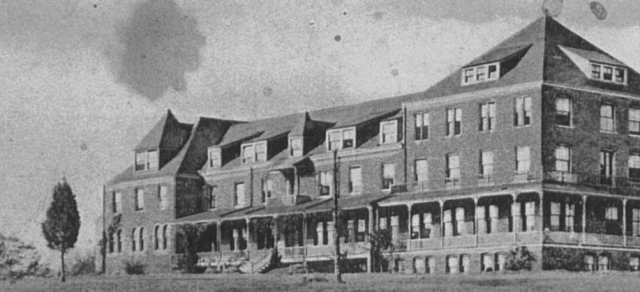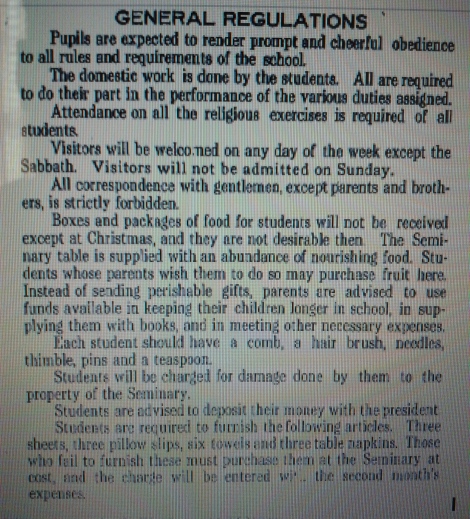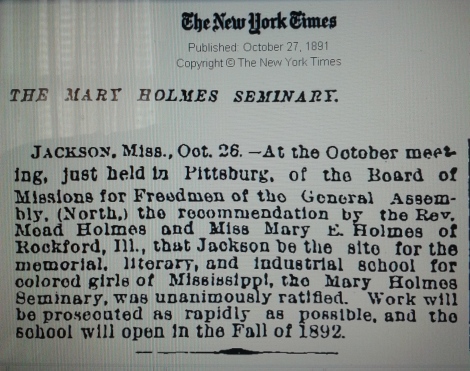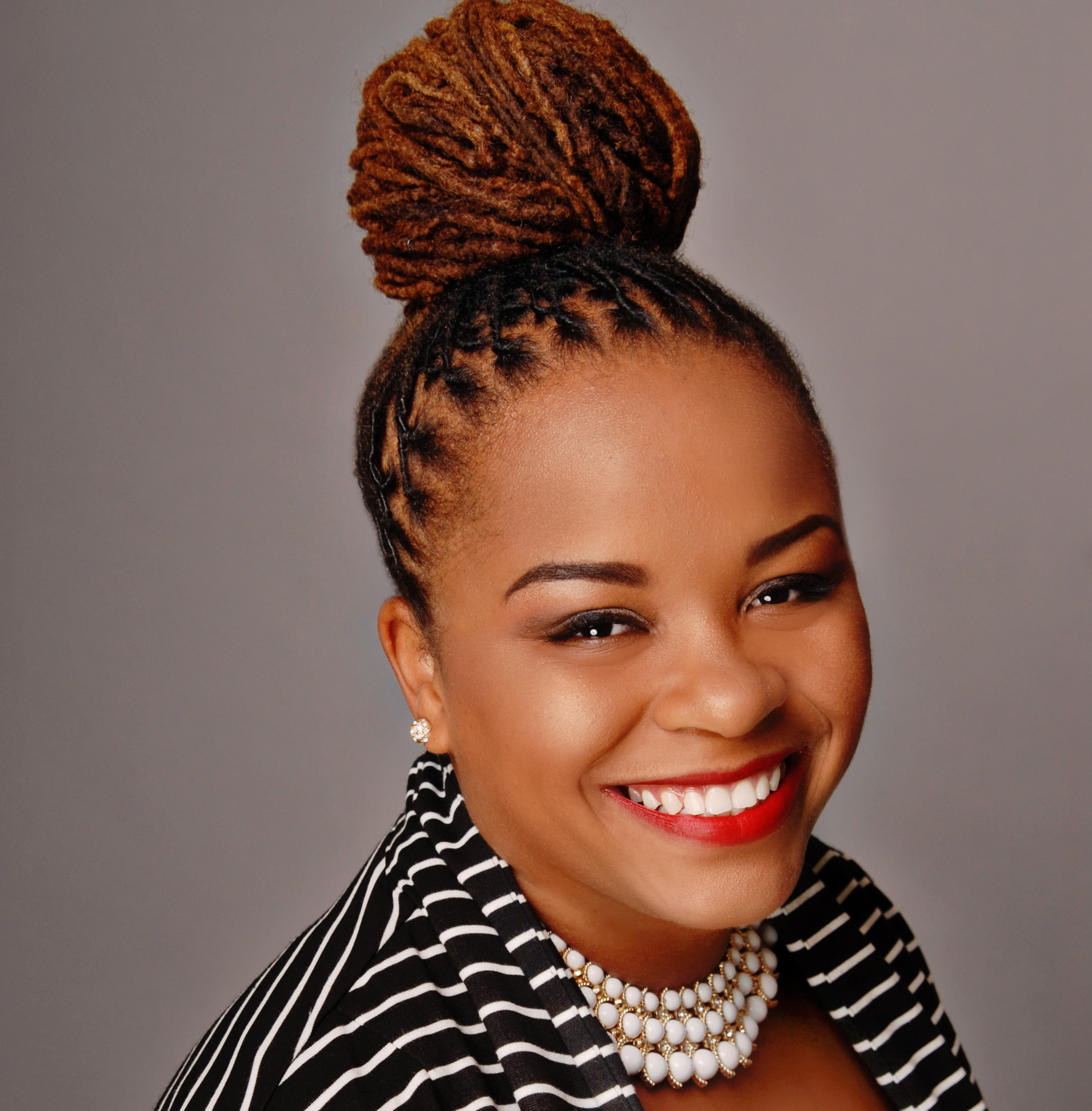
When Mary Holmes Seminary opened in 1892, its founders had one key purpose in mind: Christian education of black women.
First in Jackson, Mississippi, then in West Point, Mississippi, the school carried out that mission with excellent results for 40 years, supplying Christian homemakers and teachers throughout the country. Then, as is the case with other historically black colleges and universities, Mary Holmes expanded its purpose, lost its focus and ultimately closed.

When the school closed in 2005, its caretakers had one key thing on their hands: Over a century of documents recording the lives of those black women and others it had educated.
The story of Mary Holmes Seminary (1892-2005) is the story of just one of hundreds of initially Christian institutions that educated and documented former slaves and their offspring. Processing and making available to others the documents produced at these institutions is of key importance to people looking to learn more about black ancestry. The HBCU Newspaper History Project, a project begun by the Nashville Chapter of the Afro-American Historical and Genealogical Society, is one way to access and make accessible these documents. Visit aahgsnashville.org to learn more.
The idea for Mary Holmes Seminary germinated in 1890 in the minds of the Reverend Mead Holmes and his daughter, Mary Emilie Holmes, when their respective wife and mother, Mary D. Holmes, died in Rockford, Illinois. Both in Rockford and before that in Manitowoc, Wisconsin, Mary D. had been a tireless worker on behalf of black people. The school was intended to carry out her vision of great Christian homes inspired by Christian womanhood, as was Mary D.’s own home.
The Holmeses’ vision for the school became a reality when the school opened in Jackson in 1892. Two and a half years later it was burned to the ground and reopened in West Point in 1897. Despite the burning in Jackson and a subsequent burning in West Point, Mary Holmes opened into an environment generally ripe for black education.
Because America’s enslaved people had had relatively little exposure to formal vocational or moral education, the general sentiment by the end of the Civil War was that mass education, particularly Christian education, of the freedmen would be optimal for the country.
The first schools were for the lower grades and they gradually included upper grades and teacher components, often known as normal schools, designed to train elementary school teachers.
The Presbyterian Church in the U.S.A. created a committee in 1865 to develop these schools. This committee became the Board of Missions for Freedmen and was headquartered in Pittsburgh, Pennsylvania. It ended in 1972.
As the Holmeses were Presbyterian missionaries, it was under the auspices of the Presbyterian Board of Missions for Freedmen that Mary Holmes Seminary was born. The Presbyterian Church founded at least 30 schools for black people, including Fisk University in Tennessee, Johnson C. Smith University in North Carolina, and Lincoln University in Pennsylvania.
As was the case with the Presbyterian Church’s other schools, Mary Holmes centered on Christianity. The 1906-1907 Mary Holmes Seminary Catalogue describes the school’s scope and purpose as follows: “It is the aim of Mary Holmes Seminary to educate its pupils, physically, mentally, morally and spiritually; to train them first to be homemakers, then to be wise leaders in society and the church.”
The school’s initial three departments were literary to teach grammar, great literature, and all things necessary “for the ordinary business of life and for successful teaching;”musical to teach piano and organ; and industrial to teach all things relating to domesticity and homemaking.
The school’s motto was “Not to Seem, But to Be,” as it focused on shaping black women who really were Christians rather than people who merely wanted to appear that way to others.
After 40 years of Christian education for black women, from 1892 to 1932, in 1932 Mary Holmes became coeducational.
For a time it retained its primary role in training elementary teachers for the South. In 1959 the high school department was dropped and the school operated under the name Mary Holmes Junior College.
 In 1969 the school began operating under the name Mary Holmes College, with a four-year program and its own Board of Trustees, no longer operated by an arm of the Presbyterian Church U.S.A.
In 1969 the school began operating under the name Mary Holmes College, with a four-year program and its own Board of Trustees, no longer operated by an arm of the Presbyterian Church U.S.A.
The school began to become politically active under black presidents.
During the 1970s, 1980s, and 1990s, Mary Holmes struggled to stay afloat as a college. Unable to attract adequate money, administrators, faculty or students, Mary Holmes College lost its accreditation by the Southern Association of Colleges and Schools in 2002.
It offered its last class in 2003 and its Board of Trustees announced that the school’s operations were suspended. The board voted on April 22, 2004, to pursue bankruptcy and the Presbyterian Church U.S.A. assumed control of the property on February 1, 2005. This property includes all of the school’s records, most of which are unprocessed at the Presbyterian Historical Society in Philadelphia.
The school announced on March 3, 2005, that it had closed its doors permanently.
Recent alumni of the school operate an alumni group on Facebook under the name Mary Holmes College Alumni Preservation Project and scheduled their 5th alumni reunion for March 13-16, 2014, in West Point, Mississippi.
Pamela E. Foster is an award-winning writer of four books, about black people in country music; about her Greer Clan of Alabama heritage, which includes graduates of Mary Holmes Seminary; and about Nashville’s Holy Trinity Episcopal Church. She chairs national special projects for the Afro-American Historical and Genealogical Society and is Nashville chapter co-founder and secretary. For further reading about Mary Holmes Seminary, please see suggested reading list.


















I thought I knew about all the HBCUs in MS, but I had never heard of Mary Holmes. I would love to see those papers get processed.
Thank you for sharing, this is an excellent find and Mary Holmes college has a compelling story that needed to be told.
I would love to see the program for the first graduating class. My grandmother attend this school and was in that class, Jessie Mamie Washington.
VC,Jones, My grandmother was in one of the early classes and may have been in school with your grandmother. My Grandmother was Hattie Isabelle Kincaid.